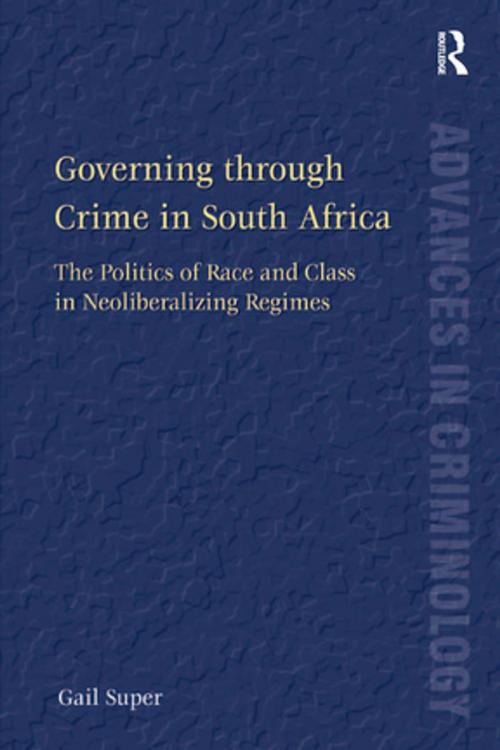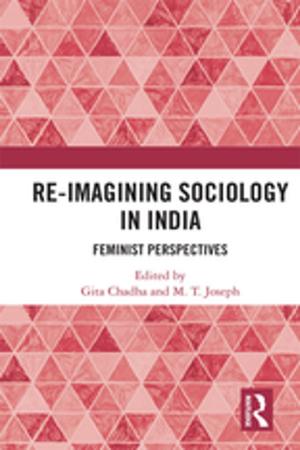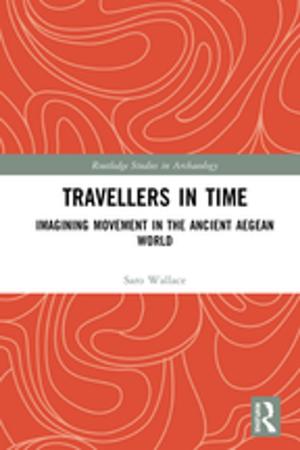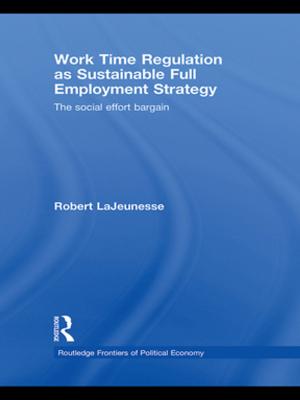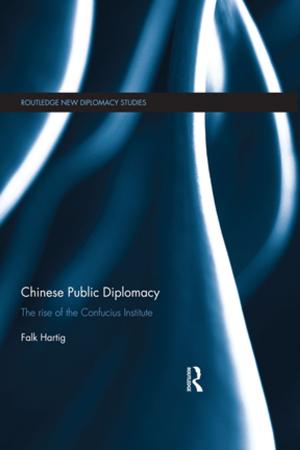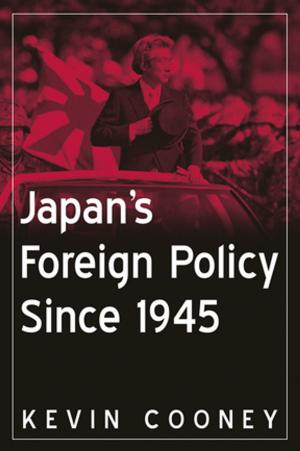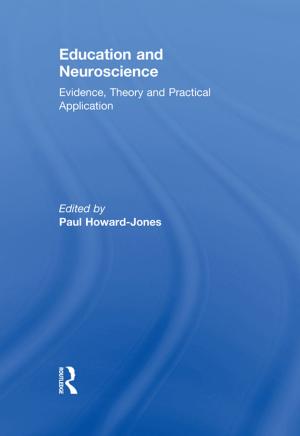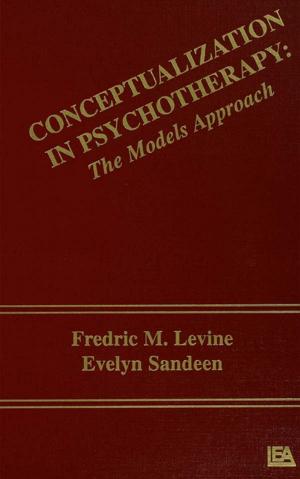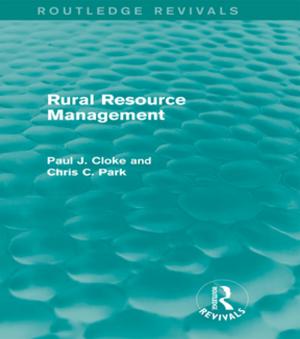Governing through Crime in South Africa
The Politics of Race and Class in Neoliberalizing Regimes
Nonfiction, Reference & Language, Law, Criminal law| Author: | Gail Super | ISBN: | 9781317125495 |
| Publisher: | Taylor and Francis | Publication: | April 22, 2016 |
| Imprint: | Routledge | Language: | English |
| Author: | Gail Super |
| ISBN: | 9781317125495 |
| Publisher: | Taylor and Francis |
| Publication: | April 22, 2016 |
| Imprint: | Routledge |
| Language: | English |
This book deals with the historic transition to democracy in South Africa and its impact upon crime and punishment. It examines how the problem of crime has emerged as a major issue to be governed in post-apartheid South Africa. Having undergone a dramatic transition from authoritarianism to democracy, from a white minority to black majority government, South Africa provides rich material on the role that political authority, and challenges to it, play in the construction of crime and criminality. As such, the study is about the socio-cultural and political significance of crime and punishment in the context of a change of regime. The work uses the South African case study to examine a question of wider interest, namely the politics of punishment and race in neoliberalizing regimes. It provides interesting and illuminating empirical material to the broader debate on crime control in post-welfare/neoliberalizing/post transition polities.
This book deals with the historic transition to democracy in South Africa and its impact upon crime and punishment. It examines how the problem of crime has emerged as a major issue to be governed in post-apartheid South Africa. Having undergone a dramatic transition from authoritarianism to democracy, from a white minority to black majority government, South Africa provides rich material on the role that political authority, and challenges to it, play in the construction of crime and criminality. As such, the study is about the socio-cultural and political significance of crime and punishment in the context of a change of regime. The work uses the South African case study to examine a question of wider interest, namely the politics of punishment and race in neoliberalizing regimes. It provides interesting and illuminating empirical material to the broader debate on crime control in post-welfare/neoliberalizing/post transition polities.
